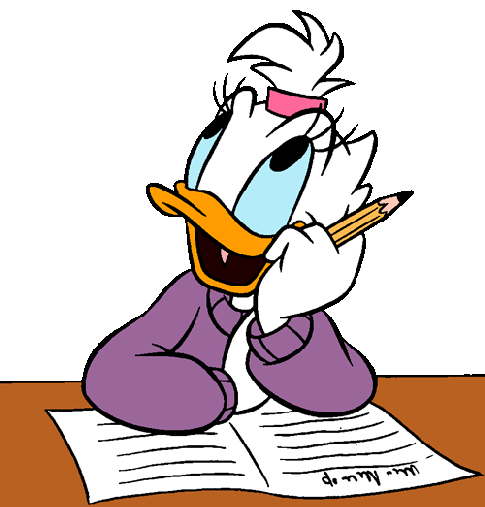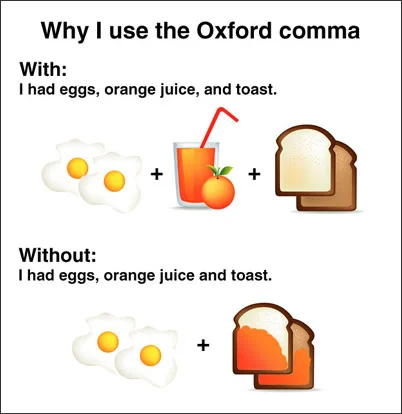By far, the most commonly misused punctuation is the comma—the most disputed, too. Have you ever witnessed a heated debate over the Oxford comma? Just me? Nevertheless, commas come in handy when used correctly, but they have a lot of various uses. So are there staunch rules for commas or just parameters? The answer is a little of both, actually. Here are five top comma tips:
Use these to offset Unnecessary Information
Commas are necessary when you have info that isn’t in a sentence. For example:
Daniel’s dog, a Jack Russell terrier, is three years old.
“A Jack Russel terrier” isn’t essential to the sentence, so it must be offset with commas.
My friend, Lily, will join us for lunch.
“Lily” is also addition information and should be separated with commas before and after.
Don’t Use these Between a Subject and Verb
Most of us were taught in elementary school to place commas anywhere you’d naturally pause in a sentence. However, this doesn’t always work. Sometimes we can pause and don’t need a comma at all, like between a subject and verb.
For example:
Megan’s graduation, will be Friday at 7 p.m.
In this case, you would never put a comma between “graduation” and “will” unless you were trying to offset some kind of additional information like in the previous tip. This sentence should read:
Megan’s graduation will be Friday at 7 p.m.
Use these to Separate Clauses in a Sentence
We talked about this in the previous Weekly Pointers post, so you can always refer to it for additional help. Basically, if you are separating two independent clauses in a compound sentence, you can use a comma with a coordinating conjunction:
We stayed at the beach for five days, and we drove home.
You can also use a comma to separate a dependent clause from an independent clause in a complex sentence:
If you enjoyed your stay, we can always come back next year.
Use these to Separate Adjectives
If you have multiple adjectives before a noun, you can separate them with a comma.
I shopped all day for the long, blue dress.
The hairy, menacing tarantula crept toward the door.
Use the Oxford Comma?
This is one of those tips that’s more of a guideline than an actual rule—but there’s a lot of discussion out there about that. Basically the Oxford comma, sometimes called a serial comma, is used before a conjunction in a series:
I played Mozart, Bach, and Chopin. —The comma before “and” is the Oxford comma.
However, a lot of people are divided on whether this comma is necessary. Would it group “Bach” and “Chopin” together ambiguously? If there are compound objects in a series, I would say definitely use the Oxford comma for clarity:
I love mint chocolate chip, butter pecan, and cookies and cream.
Since there is a conjunction in one of the items in the series, you need a comma to clarify. You might also need a comma for clarity in other specific cases. For example:
My parents, Beth and Mark attended my presentation.
Are Beth and Mark the parents or additional attendees? In this case, an Oxford comma is necessary.
With a topic such as the Oxford comma, be sure to pay attention to the style in which you’re writing. MLA and Chicago commonly use it, while AP does not. Follow the guidelines you’ve been given, and you should avoid most of the comma confusion. Best of luck!




















